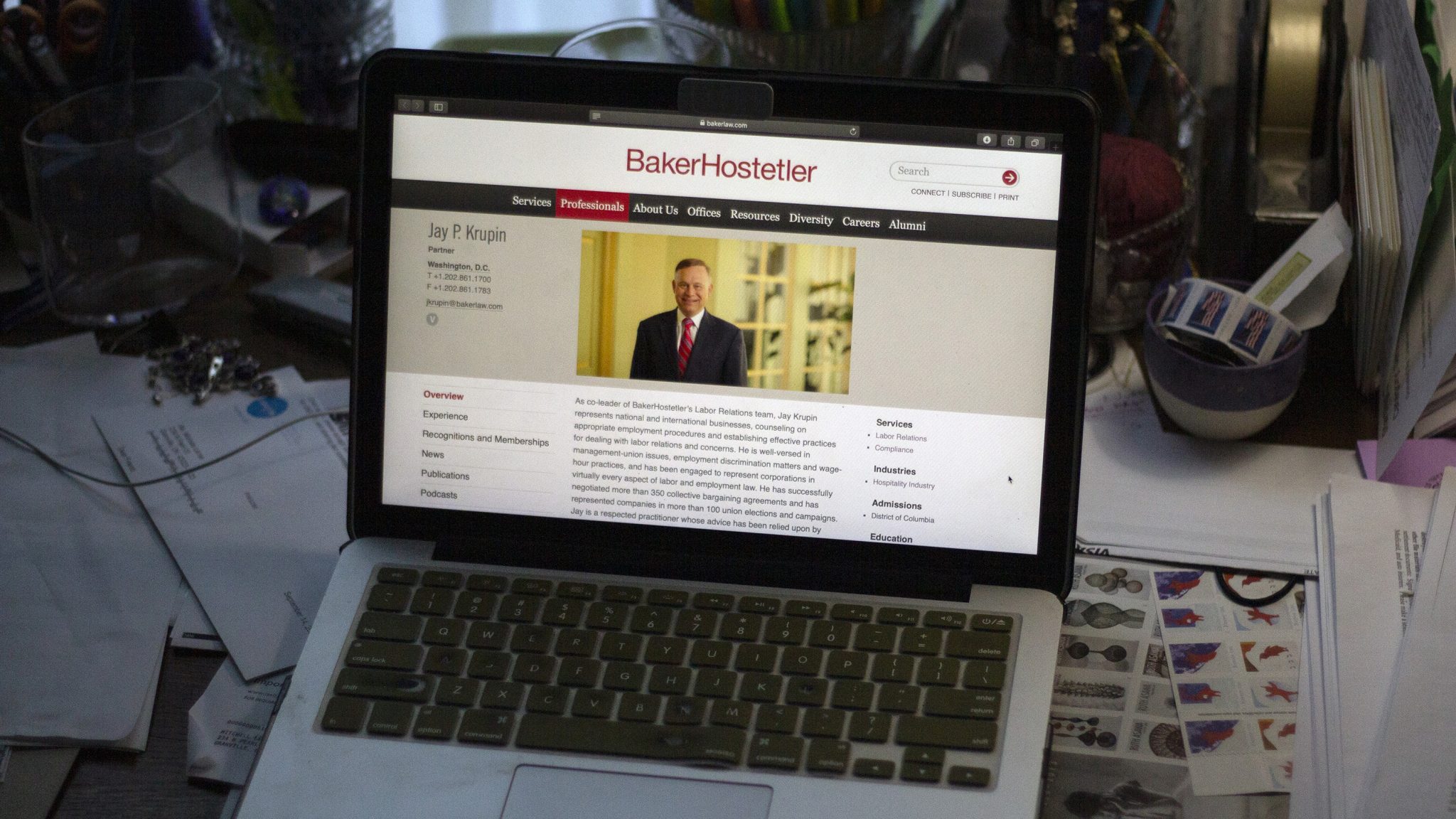University of Maryland community members are concerned about the record of the attorney participating in collective bargaining discussions with the union that represents the university’s workers.
The union’s calls for the school to bargain with its workers has intensified over the past several months. Jay Krupin, a lawyer from the law firm BakerHostetler, is representing the university in its collective bargaining discussions. The university has worked with Krupin since the union was formed almost 20 years ago, said Don Mitchell, a former university employee and former union member.
Krupin has represented companies and negotiated more than 350 collective bargaining agreements, according to his profile on the company’s website.
Krupin’s profile reads that he fought a “lengthy and involved battle to defeat the union before the National Labor Relations Board … which found no merit to charges of unfair labor practices filed by nonunionized client employees.” This language worries some union members.
In July, the union — the American Federation of State, County and Municipal Employees Council 3 Local 1072 — filed a complaint with the Maryland State Higher Education Labor Relations Board, alleging that housekeepers on the campus did not receive proper equipment or training to do their jobs safely amid the COVID-19 pandemic. The board moved the complaint forward against the university in September.
An article co-authored by Krupin in 2011 stated that housekeepers use standards set by the Occupational Safety and Health Administration “as a weapon against hospitality employers.”
Some students from United Students Against Sweatshops, a new student organization that aims to support staff and student workers, are worried about the university’s ties with the firm.
[State labor board moves unfair labor practice complaint against UMD forward]
“It just brings an extra level of tension and distrust and that sort of seems to be a pattern between the administration and the union workers,” said Casey Ottenwaelder, a junior behavioral and community health major and member of USAS.
On occasion, the university retains outside counsel for issues that require specialized legal expertise, according to a university spokesperson. The state attorney general’s office maintains a list of qualified law firms, according to the spokesperson, and the services may be utilized by all University System of Maryland institutions.
“It’s notable that of the options that they have, they choose BakerHostetler, [which] has a national reputation for anti-labor activity,” said Todd Holden, the interim president of the union.
The university already has its own attorneys, as well as departments such as Human Resources, that could participate in the bargaining discussions instead, the union said.
The university spokesperson did not respond why the university chose BakerHostetler as their outside counsel.
As a student at this university and organizer for the union, Emily Fox would rather see the university investing her tuition dollars toward workers, rather than outside counsel, she said.
“It’s not like him personally, it’s just what he represents,” the junior politics, philosophy and economics major said. “And the fact that they are doing so much to oppose the union.”
Krupin did not respond to multiple requests for comment.
[Workers call for improved COVID-19 guidelines across USM institutions in state hearing]
Amy Rivera, the president of Political Latinxs United for Movement and Action in Society, said the move “is a show of bad faith.”
“If the administration and the school really are honest about wanting to work with the labor union or with the workers, then [they] could find another attorney,” the sophomore criminology and criminal justice major said.
Additionally, it doesn’t seem like the university is cooperating with the labor union, Rivera said, especially given its ties to BakerHostetler.
In a Black Faculty and Staff Association town hall Aug. 28, participants questioned university President Darryll Pines on why the university was still paying a “union-busting” attorney. Pines said that was a “baiting question” unworthy of a response.
“I don’t think this is an us versus them mentality, so please tone it down,” Pines said. “It’s unnecessary.”
To Mitchell, the university’s decision to use Krupin’s services showed that it failed to develop a “mature” bargaining relationship with the union, he said.
“The university cannot remain credible when they merely say that they care about their employees and then hire someone who is ideologically dedicated to taking as many rights and benefits as possible from those same employees,” Mitchell said.



